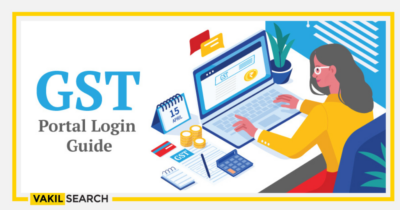The composition Scheme is available to taxpayers with a turnover of less than ₹ 1.5 crore. The limit is ₹75 lakh in the case of North-Eastern states and Himachal Pradesh.
The Goods and Services Tax is an indirect taxation method that has significantly simplified Indian taxation laws. GSTR-4 is the GST return filing meant for composition dealers, a scheme available under the GST regime to certain types of taxpayers. The GST return for the composition scheme must now be filed annually, whereas it was previously filed quarterly. The purpose of this article is to discuss the GST annual return for composition dealers, the composition scheme, and why they are important.
What Is GSTR-2A?
The GST portal automatically generates GSTR 2a return for all businesses based on their purchases. Traders record their GSTR 1s so that GSTR 2As can be created. The GSTR 2As take information about goods and services acquired by the seller during a given month.
What Is GSTR-3?
Detailed information about transactions, purchases, sales during the month, along with the GST liability, is maintained in the GSTR 3 Filing. Auto-generation of this return is based on the data extracted from GSTR-1 and GSTR-2. Additionally, GSTR-3 will show GST liability for the month. Paying the tax and registering the return are the taxpayer’s responsibilities. GST-enrolled and GST-registered taxpayers with 15-digit PAN-based GSTINs are required to file or register the GSTR-3.
What Is GSTR – 4?
GSTR-4 is the GST return form for composition dealers. Unlike regular taxpayers, who must file up to three returns per month, composition dealers must only file one return per year in the form of GSTR-4. In most cases, the deadline for filing the GST competition return is April 30th, following the assessment year. All taxpayers who have chosen the Composition Scheme under the GST regime are required to file GSTR – 4.
What Is GSTR – 5A?
An OIDAR (Online Information and Database Access or Retrieval) return is required by OIDAR service providers who provide services to non-taxable persons in India from outside the country. There is no requirement to register GSTR 5A return if there has been no business activity (NIL return) during the tax period. It must be registered by the date the commissioner may announce or by the 20th following the tax time to which the return compares. The GSTR 5A can only be registered if all taxes and additional obligations have been paid for the preceding tax period.
GST Composition Scheme Rules
Here are some key rules governing the composition scheme:
- Turnover Limit: Businesses with an annual turnover of up to ₹1.5 crore (₹75 lakh for certain special category states) are eligible to opt for the composition scheme.
- Tax Rates: The applicable tax rate varies depending on the nature of your business:
- Manufacturing: 1%
- Trading: 1% or 2% (depending on the product category)
- Restaurants: 5% (without input tax credit)
- Ineligible Supplies: Businesses supplying certain goods or services, such as interstate supplies, online marketplace supplies, and goods attracting a higher tax rate, are not eligible for the scheme.
- Limited Input Tax Credit: Unlike regular GST, the composition scheme restricts claiming input tax credit (ITC) on purchases.
Things to Know About the GST Return for the Composition Scheme
- The GST portal now offers an offline Excel-based tool to help taxpayers file their annual GSTR-4 return on time. The facility for GST composition return filing was added to the GST (Goods and Service Tax) portal only in August of 2020.
- The due date to opt for the composition scheme in the assessment year 2020-2021 by filing form CMP-02 was extended to 30 June 2020. This will apply to taxpayers registered under both Section 10 of the CGST Act and those who will opt-in through the CGST notification that came out on 7 March 2019.
Eligibility Criteria for the Composition Scheme Under the GST Regime
There are 2 divisions of eligibility criteria which you should know and here are the 2 divisions:
Who Can and Cannot Avail of the GST Composition Scheme?
Eligible Businesses:
- Businesses with an annual turnover up to the prescribed limit (₹1.5 crore or ₹75 lakh)
- Businesses not involved in interstate supplies, online marketplace supplies, or specific goods/services with higher tax rates
- Businesses not registered under the Input Service Distributor (ISD) scheme
- Businesses not opting for the TDS (Tax Deducted at Source) or TCS (Tax Collected at Source) mechanism
Non-eligible Businesses:
- Businesses exceeding the turnover limit
- Businesses involved in interstate supplies, online marketplace supplies, or specific goods/services with higher tax rates
- Businesses registered under the ISD scheme
- Businesses opting for the TDS or TCS mechanism
What is the GST Composition Scheme?
The GST composition scheme is an optional alternative to the regular GST filing system. It allows eligible small businesses to pay a fixed rate of tax on their total turnover, instead of calculating and paying tax on individual purchases and sales. This significantly reduces the compliance burden for small businesses.
- Dealers under the composition scheme are obligated to remit tax via the reverse charge mechanism (RCM) when applicable. The applicable GST rate corresponds to the one at which the dealer is liable to remit GST; thus, the concessional rates offered under the composition scheme do not apply to RCM taxes.
- Furthermore, composition scheme participants are ineligible to claim input tax credit (ITC) for taxes paid through the reverse charge mechanism. These dealers are exempt from Integrated Goods and Services Tax (IGST) payments, as their obligations are confined to Central GST (CGST) and State GST (SGST) for imports of services or goods from unregistered dealers under RCM.
- The tax obligations of composition dealers encompass a fixed rate on their aggregate sales in addition to taxes due under the reverse charge mechanism for specific acquisitions. Therefore, the aggregate GST due includes taxes on sales, reverse charge transactions, purchases from unregistered dealers, and imported services.
- In contrast to regular taxpayers, those opting for the composition scheme are not mandated to keep exhaustive records of their financial activities. They are required to issue bills of supply instead of tax invoices since the tax is borne by the dealer directly and cannot be passed on to customers
GST Returns for Composition Dealers
Composition dealers need to file the following returns under the GST regime.
- Taxable individuals must pay tier taxes via a challan-cum-statement from 2019 onwards in the form of CMP-08.
- From the assessment year 2019-2020, the frequency of filing GSTR-4 has been changed from a quarterly to an annual basis.
- Filing of GSTR-9A will continue to apply with certain exemptions for assessment years 2017-2018 and 2018-2019
Taxpayers need to be very careful while filing the GST return filing for composition dealers as it cannot be revised once filed on the portal: https://www.gst.gov.in/. Hence, such dealers should take the help of legal experts before filing GSTR4. Any delay in filing the GST return for composition dealers will attract a late fee of INR 200 per day. However, the maximum fine that can be levied is INR 5000.
What is the GST Composition Scheme Limit?
The current turnover limit for the composition scheme is ₹1.5 crore for most Indian states. However, for specific North-Eastern states and Himachal Pradesh, the limit is ₹75 lakh.
It’s important to note that if your business turnover exceeds the limit in any financial year, you will have to migrate to the regular GST filing system from the subsequent financial year.
Are There Any Drawbacks to Opting for a Composition Scheme under GST?
While the composition scheme offers simplified compliance, there are some drawbacks to consider:
- Limited Input Tax Credit: You cannot claim ITC on purchases, which can be disadvantageous if you purchase goods with high GST rates.
- Ineligibility for Certain GST Benefits: Businesses under the composition scheme are not eligible for certain export benefits or input tax refunds.
- Limited Business Growth: The composition scheme might not be suitable for businesses aiming for rapid growth as exceeding the turnover limit would require switching to the complex regular GST system.
What are the Tax Rates Applicable for the Composition Scheme in GST?
The applicable tax rate under the composition scheme varies depending on the nature of your business, as mentioned earlier:
- Manufacturing: 1%
- Trading: 1% or 2% (depending on the product category)
- Restaurants: 5% (without input tax credit)
How Easy is it to File Composite GST Returns?
The composition scheme significantly simplifies GST filing compared to the regular system. Under the composition scheme, businesses only need to file one annual return (GSTR-4) instead of the three monthly returns and one annual return required under the regular system. This significantly reduces paperwork and compliance burden. If you have any more queries, we the experts at Vakilsearch are always ready to help.
FAQs
What is the limit for composition annual return in GST?
There is no specific limit associated with the composition annual return (GSTR-4) in GST. However, the return needs to accurately reflect the business's total turnover for the financial year.
What is the GST final return for the composition dealer?
The GSTR-4 filed annually by composition dealers serves as their final return for the financial year. It captures the details of their total turnover during the year and the tax liability based on the applicable composition tax rate.
What is GST quarterly return for composition taxpayers?
The composition scheme does away with the need for filing quarterly returns that regular GST taxpayers are required to file. Composition dealers only need to file the GSTR-4 annually.
What is the turnover limit for composition scheme under GST?
The current turnover limit for the composition scheme is ₹1.5 crore for most Indian states. However, for specific North-Eastern states and Himachal Pradesh, the limit is ₹75 lakh.
Is annual return mandatory for composition scheme?
Yes, filing an annual return (GSTR-4) is mandatory for all businesses registered under the composition scheme. This annual return needs to be filed by the due date specified by the GST authorities.
What is the turnover limit for GSTR 9?
The GSTR-9 is an annual return filed by regular GST taxpayers, not composition dealers. Therefore, the turnover limit for GSTR-9 doesn't apply to businesses under the composition scheme.
What are the rules for composition dealers in GST?
There are several rules governing the composition scheme, including:
- Turnover limit: Businesses must have a turnover within the specified limit (₹1.5 crore or ₹75 lakh).
- Tax rates: Specific tax rates apply depending on the business type (manufacturing, trading, restaurants).
- Ineligible supplies: Certain goods/services and specific business activities are not eligible for the scheme.
- Limited ITC: Composition dealers cannot claim input tax credit (ITC) on purchases.
- Annual return filing: Filing the GSTR-4 annual return is mandatory.
What is the time limit for ITC 01?
The concept of ITC-01 and its time limit doesn't apply to composition dealers. This is because they cannot claim input tax credits under the scheme.
Can I get ITC from a composition dealer?
No, you cannot claim an input tax credit (ITC) on purchases made from a composition dealer. This is because composition dealers pay a fixed tax rate and don't issue tax invoices with separate tax components.
Who is not eligible for the composition scheme?
Several businesses are not eligible for the composition scheme, including:
Can a composition dealer claim a refund?
Generally, no. Composition dealers cannot claim refunds of GST paid on purchases since they cannot claim ITC. However, there might be very specific situations where a refund might be applicable based on specific provisions and circumstances. It's recommended to consult a tax professional for such specific cases.










